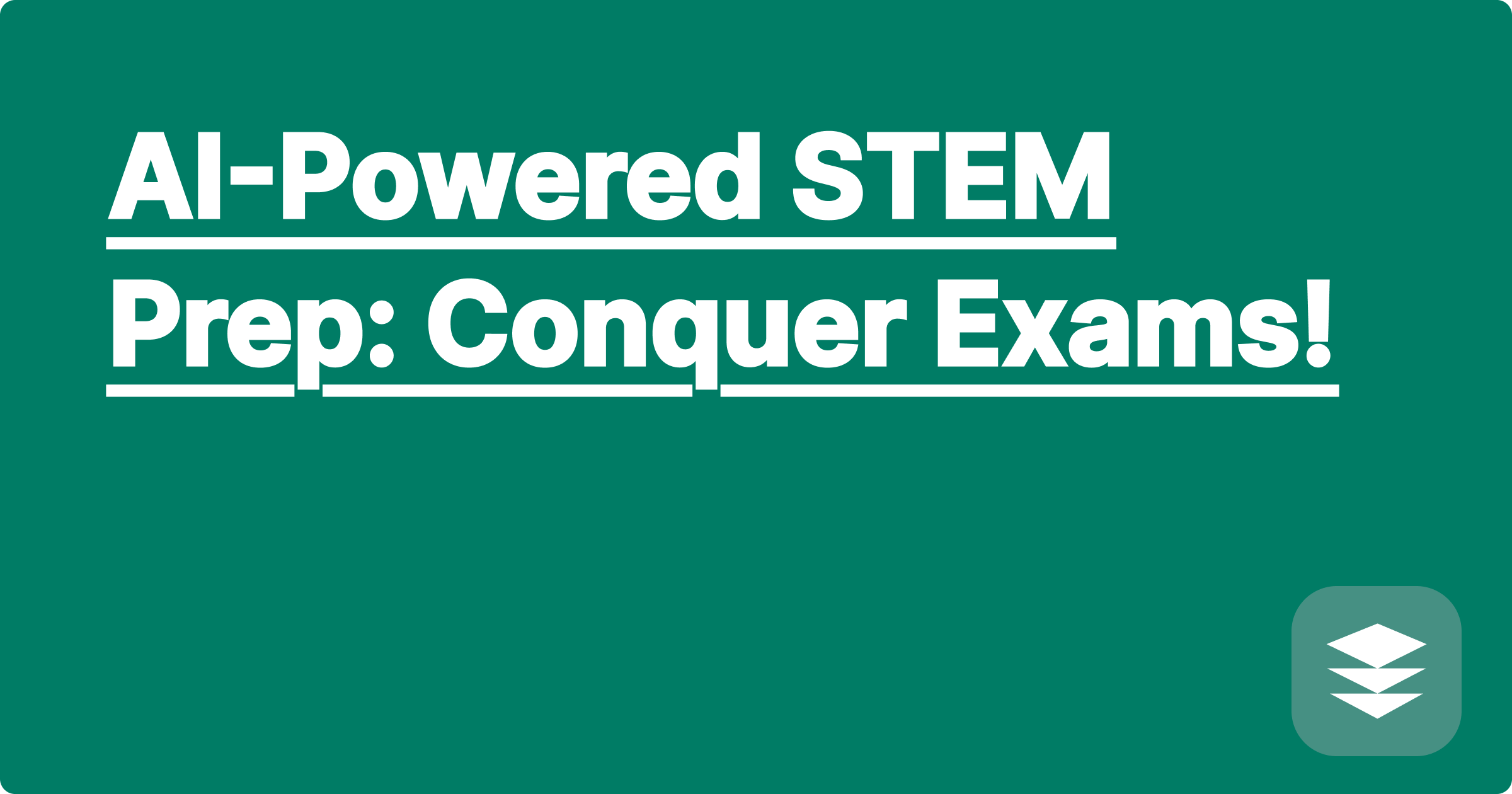
The pressure cooker of STEM exams is a familiar feeling for many students and researchers. Balancing complex concepts, demanding coursework, and the looming threat of assessments can feel overwhelming. But what if there was a way to not just survive, but thrive in this challenging environment? Artificial intelligence (AI) is rapidly transforming the learning landscape, offering powerful tools to revolutionize how we prepare for and conquer STEM exams. It’s no longer about cramming all night, but about working smarter, not harder, with the help of AI-powered study companions.
For high-achieving STEM students and researchers (especially those targeting a GPA of 3.5 and above), leveraging AI can be the key to unlocking peak performance and gaining a significant edge. This blog post will explore how generative pre-trained AI (GPAI) tools can be integrated into your study routine, boosting your efficiency and reducing prep time, ultimately leading to a quantum leap in your academic journey. Think of it as a cheat sheet, but powered by the cutting edge of technology. We'll delve into practical examples, real-world applications, and provide actionable strategies to help you harness the power of AI for academic success.
Imagine having a personalized tutor available 24/7, capable of analyzing complex scientific literature, generating practice questions tailored to your weaknesses, and even visualizing intricate data sets. That's the promise of GPAI tools. This isn’t about replacing your hard work, but amplifying it. It's about empowering you to learn faster, understand deeper, and perform better.
STEM fields are notorious for their demanding curricula and rigorous exams. Students often grapple with vast amounts of information, complex formulas, and intricate concepts. Traditional study methods, like rote memorization and endless practice problems, can be time-consuming and often fail to foster true understanding. This leads to inefficient learning, increased stress, and ultimately, suboptimal performance on exams. Furthermore, keeping up with the latest research and advancements in rapidly evolving STEM disciplines adds another layer of complexity. The sheer volume of scientific literature can be daunting, making it challenging for students and researchers to stay current and effectively integrate new knowledge into their studies.
GPAI tools offer a transformative approach to STEM exam preparation. Think of tools like ChatGPT and Wolfram Alpha as your AI-powered study buddies. ChatGPT can be used to explain complex concepts in simpler terms, generate practice questions, and even help you brainstorm essay outlines. Wolfram Alpha excels at computational tasks, solving complex equations, visualizing data, and providing step-by-step solutions. These tools are not just about finding answers; they are about understanding the underlying principles.
Let’s walk through a practical example. Suppose you’re struggling with a particularly challenging concept in organic chemistry, like the mechanisms of nucleophilic substitution reactions. You can use ChatGPT to break down the concept into smaller, more manageable chunks. Ask it to explain the difference between SN1 and SN2 reactions, provide examples, and even generate practice questions to test your understanding. Then, use Wolfram Alpha to visualize the reaction mechanisms, explore the effects of different reactants and solvents, and even calculate reaction rates. This combined approach allows you to approach the concept from multiple angles, fostering deeper understanding and better retention.
One student used ChatGPT to prepare for a biochemistry exam by generating practice questions on metabolic pathways. By consistently practicing with these AI-generated questions, the student identified their weak areas and focused their study efforts accordingly. They reported a significant improvement in their understanding of the material and ultimately achieved a higher score on the exam. Another student, working on a research project in materials science, used Wolfram Alpha to analyze complex datasets and visualize the properties of different materials. This allowed them to identify trends and patterns that would have been difficult to discern using traditional methods, leading to a more insightful and impactful research project. These are just a few examples of how AI tools can be practically applied to enhance STEM learning and research.
To maximize the benefits of AI in your STEM studies, consider these strategies. First, be specific with your prompts. Instead of asking a general question, frame it in a way that elicits the specific information you need. Second, don't be afraid to experiment with different GPAI tools and find the ones that best suit your learning style and specific needs. Third, remember that AI is a tool, not a replacement for your own effort and critical thinking. Use it to enhance your learning, but always verify the information and ensure you understand the underlying principles. Finally, explore the advanced features of these tools. Learning how to adjust parameters in ChatGPT or create custom functions in Wolfram Alpha can unlock even greater potential and allow you to tailor the tools to your specific research or study needs. This is your AI "cheat sheet," so learn to use it effectively. Think of keywords like "STEM AI tools," "AI study hacks," or even "GPAI cheat sheet" to guide your exploration.
Conclude by embracing the power of AI as a valuable ally in your STEM journey. These tools are readily available and offer a powerful way to enhance your learning, boost your efficiency, and ultimately, achieve your academic goals. Start exploring, experimenting, and integrating AI into your study routine today. The future of STEM learning is here, and it’s AI-powered. Don't just keep up; leap ahead.
AI-Powered STEM Prep: Conquer Exams!
AI for STEM Homework: Solve Faster!
Boost Your GPA: AI Study Guide
AI Math Solver: Get Unstuck Now!
AI in Research: Paper Assistant